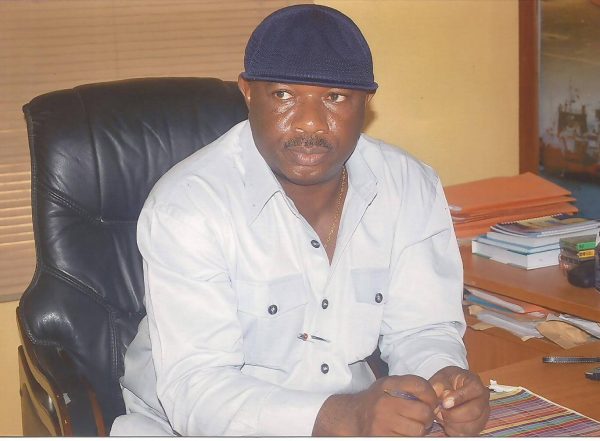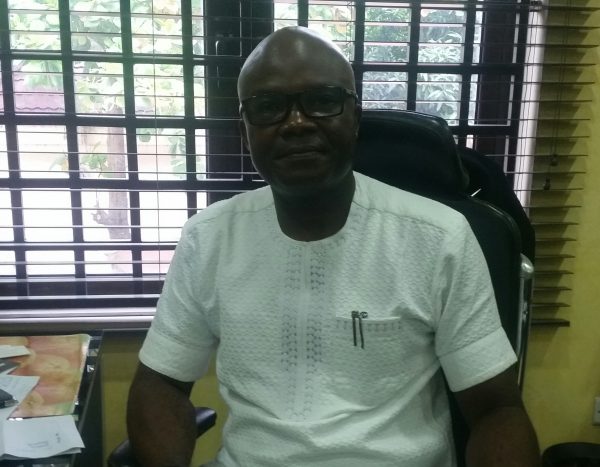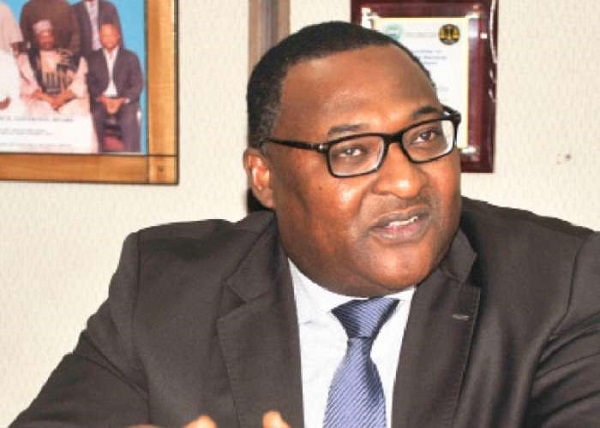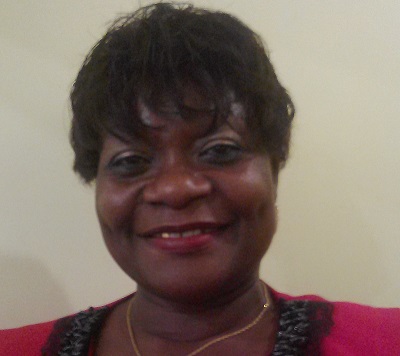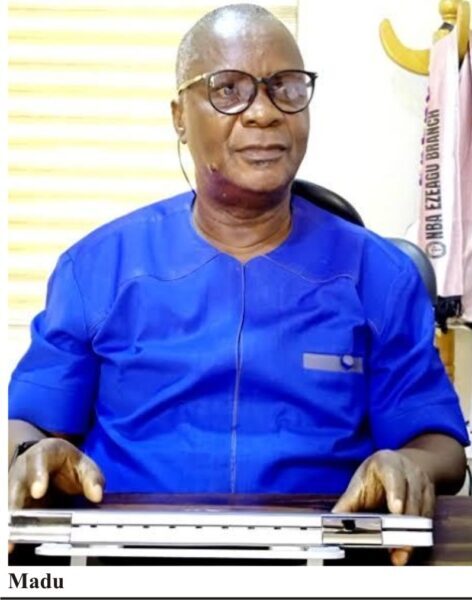Why There Are Checkpoints On Port Access Roads- Jime
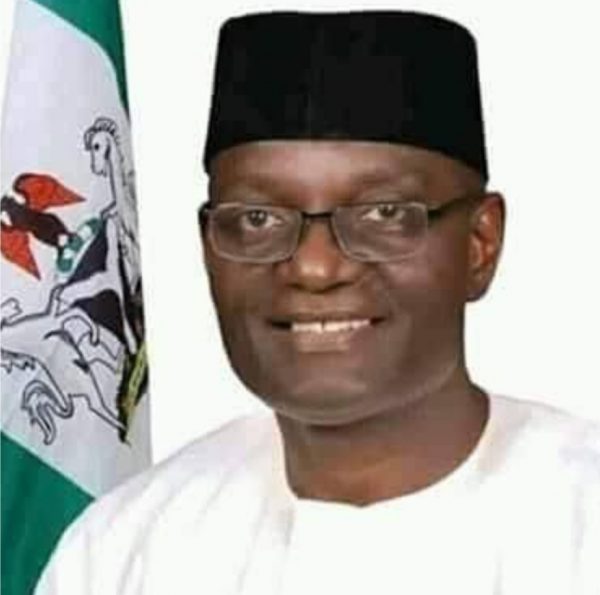
Hon. Emmanuel Jime is the Executive Secretary of Nigerian Shippers’ Council (NSC). He hosted the League of Maritime Editors and Publishers (LOMEP) last week as he gave a rundown of the Council’s activities since his emergence as helmsman eight months ago.
Enjoy it:
Relationship With Stakeholders
I’ve already spent eight months at the helm of affairs at Nigerian Shippers’ Council (NSC) but it just feels like I started yesterday. This is a challenge to get things done quickly because time waits for no one.
During my first interface with journalists, I mentioned that before now I always shied away from the press. This assignment has exposed me to the need to have a very robust relationship with the press. We haven’t done as much as we should, but I’m pleading with you for a little more understanding because it can only get better. This is the beginning of numerous engagements that we are going to have.
I will be happy to get the kind of relationship and friendship you gave my predecessor for the remainder of my time as Executive Secretary of NSC. I think that there is work to do from my end to improve on that relationship but I’m determined to make this beautiful relationship with the press.
Talking about the need to continue with the previous policies of my predecessor, I made this commitment earlier. However, as with anything in life, the only constant thing is change. You could get to a place where the policies of the past may longer be suitable for what needs to be done. Hence, there will be need for some adjustments and we are ready to do that.
However, the advantage I have is that as I work with veteran journalists like you, there would be a feedback to tell whether we are doing the right thing or there is a need to change. This explains why there is a need to maintain a robust relationship with the press.
I’m glad that you’re aware of the policy promotions that we have embarked on at NSC such as the dry ports, Vehicle Transit Areas (VTAs), among others. I’m very passionate about these activities because they’ll improve the value of our port system. A seaport is only vibrant to the extent of its connectivity to the hinterlands. In Nigeria, it is clear to everyone that the road network is the only available transport mode for cargo evacuation. Unfortunately, the roads are even in a pitiable state. This isn’t good for any maritime nation, so, this intermodal transport system with emphasis on railways and waterways have to be viable.
Recently, I had an engagement with the barge operators and they revealed lots of challenges with their operations. I believe that in Nigeria, the evacuation of cargoes via the waterways should be next to the roads in order of priority. The railway efforts are commendable, but we have a natural resource with the inland waterways connection. Someone painted a very good picture of how from Lagos in Apapa precisely, it is possible to reach almost every part of the nation via waterways. The man painted a beautiful picture and he mentioned the rivers and creeks and how they were connected. There is a need for strong maritime advocacy in this area and I hope that we can work with the press to set this agenda.
On the area of dry ports development, I can report various levels of completion. Kano dry port is about to take off, Funtua is at the same level. The Plateau State government has just bought over the dry port project in Jos and there is heavy investment there. This is serious interest in the development of these projects and there is the Ibadan dry port where we have discussed at length with the Chinese sponsors. Recently, I was in Yola where I met with the Adamawa State Governor and he noted that the state is interested in developing VTAs that will be private sector driven. If we are going to decongest the seaports, dry ports have to be effective. With Kaduna dry port functioning, Kaduna shippers can do their import or export transactions without leaving Kaduna.
NSC is also concerned about the high cost of doing business at Nigerian ports. Economic regulation is one of the core mandates of Shippers’ Council and we are actively involved in discussions with shipping companies, terminal operators and other service providers on charges. No one should introduce arbitrary charges, but we also have to be honest and realize that the inflationary trends and other variables should influence the cost of services.
Container Deposit
The issue of container deposit is an area that NSC is actively engaged in. We are discussing with two service providers who have brought to NSC’s notice two platforms that could be used to mitigate the container deposit challenge. For instance, we have a platform that introduced container deposit insurance. This will soon be introduced to shippers and it will address the fundamental issues the costs from container deposits. There is also another group but I wouldn’t talk about their solution because I’m yet to be fully abreast of their system. The Ministry directed NSC to have a discussion with that group as well. Hopefully, in the near future we will be able to put one of these platforms forward to address this problem of shippers.
Areas for Advocacy
The National Transport Commission (NTC) bill has been passed again and this is the third time. The National Assembly has passed it and what is left is for a clean copy to be sent to the President for his signature. Some emphasis should be brought on this because it is a critical development for the industry.
Also, the International Cargo Tracking Notes (ICTN) which Shippers’ Council has been given approval to implement is something that we are having challenges with. The challenges bother on the personal interest of some individuals and not the industry. There are people who are fighting to ensure that NSC doesn’t implement this policy. It’s more than four years since this was implemented, yet this is something that can have some real impact on the nation’s economy and the way services are delivered at Nigerian ports. We are in court over the issues and we haven’t gotten to a stage where we can say we will be implementing ICTN soon. NSC’s interest in ICTN is only the benefits it would provide in the nation’s maritime space. The challenge with the court matter on ICTN is that it is delaying the implementation of ICTN.
NSC has a development plan for what it intends to do in the next three years. This plan was developed during the retreat we had towards the end of last year. The idea is to implement these activities from 2022 to 2024. We need to avail the press the details of this plan so that you can help us put it out in the course of your work.
Shippers Council As A Toothless Bulldog
This assertion comes from the dissatisfaction people feel when they realize that there is a lot going wrong that as economic regulator we are to right the wrongs. We have the regulatory mechanisms and the letter appointing us as economic regulator can be used to shutdown operations of some stakeholders. We have shutdown about four terminals in the past but the existing legal framework of NSC does have some limitations.
It is in recognition of these legal limitations that we went into a partnership with the Federal Competition and Consumer Protection Council (FCCPC). We signed an MoU with them because in their legal system they have the ability to arrest and prosecute. NSC’s law doesn’t give it the power to arrest. We are operating in a commercial environment and it is a sensitive one because you may achieve your objectives by locking up offenders at the ports but the long term consequence of that action would be drastic. FCCPC can go into all the sectors. The good thing about the MoU we have with them is that it limits them from carrying out their activities in the sector without NSC. As the economic regulator in the sector, we have certain information that they may not have and it is only when matter has gone beyond NSC’s ability to adequately address that we may resort to that MoU.
There is also the Nigerian Ports Process Manual (NPPM) that is being led by NSC but other agencies and stakeholders are onboard. NPPM is beginning to be so impactful that we have expanded the scope of our work. At the moment, because sometimes there aren’t full collaborations with government agencies, it appears like NSC is sole funding the activities of NPPM. We are expanding our scope to the Eastern ports as well but we’re handicapped in equipment, facilities and personnel.
So, these platforms make NSC more able to bite and not be a toothless bulldog. Our regulatory service could shutdown any operator that defaults. If this isn’t satisfactory, we can escalate the issue to the NPPM which is an interagency platform. However, when the issue goes beyond these two levels, we invite the FCCPC to handle it.
The NTC bill also capture some of these enforcement challenges and when it’s passed, we wouldn’t have to rely on any other government agency to do our work.
Out Of Court Settlement
We are working in the office of the Attorney General and the Ministry of Justice where the process has been domiciled. The President directed that the office of the Attorney General works with us and other parties in order to achieve the out of Court settlement.
However, it isn’t all the parties that took us to court that have approached us for out of court settlement. There are other groups that are still in court on the matter and we have reached the supreme court. At the two earlier courts we were able to get favourable judgments. While we are fighting in court, we are still listening to some of the offers made about out of court settlement.
Dry Port And Rail Connectivity
Part of the requirement for obtaining a license for dry port operations is railway linkage. This is an important requirement. Kaduna dry port has a rail link, Kano is constructing this rail connection and Funtua and Ibadan dry ports are virtually on the rail line. This shows that we recognize the importance of railway to dry ports.
Cargo Defense Fund
We are trying to reorganize the structure of CDF. When I came in, I understood that the shipping community didn’t participate in the structuring of CDF. Shippers weren’t contributing even though it was to be a contributory fund for shippers. NSC was taking the initiative to run this CDF but it limited the success of the fund.
My predecessor had put in place a mechanism to see that after the court proceedings, some of the fund could be used to start the implementation of CDF but NSC can’t continue to sponsor it. We must push the sensitization for shippers to know that this has to be a contributory fund.
Checkpoints On Port Access Roads
We all know what the problem is. It is a human problem. Police says they have to be on the roads to provide security, Customs and Nigerian Ports Authority (NPA) also have their reasons. All agencies which have a role in the clearing of goods from the ports are located in the ports. So, why should they be on the roads? It means the officers they have at the ports aren’t doing their jobs. There is a conspiracy and high level connivance. We have to put on our thinking caps because we are going to be discussing with someone who can help solve the problem but he is benefitting from it. So, how do we get the solution?



